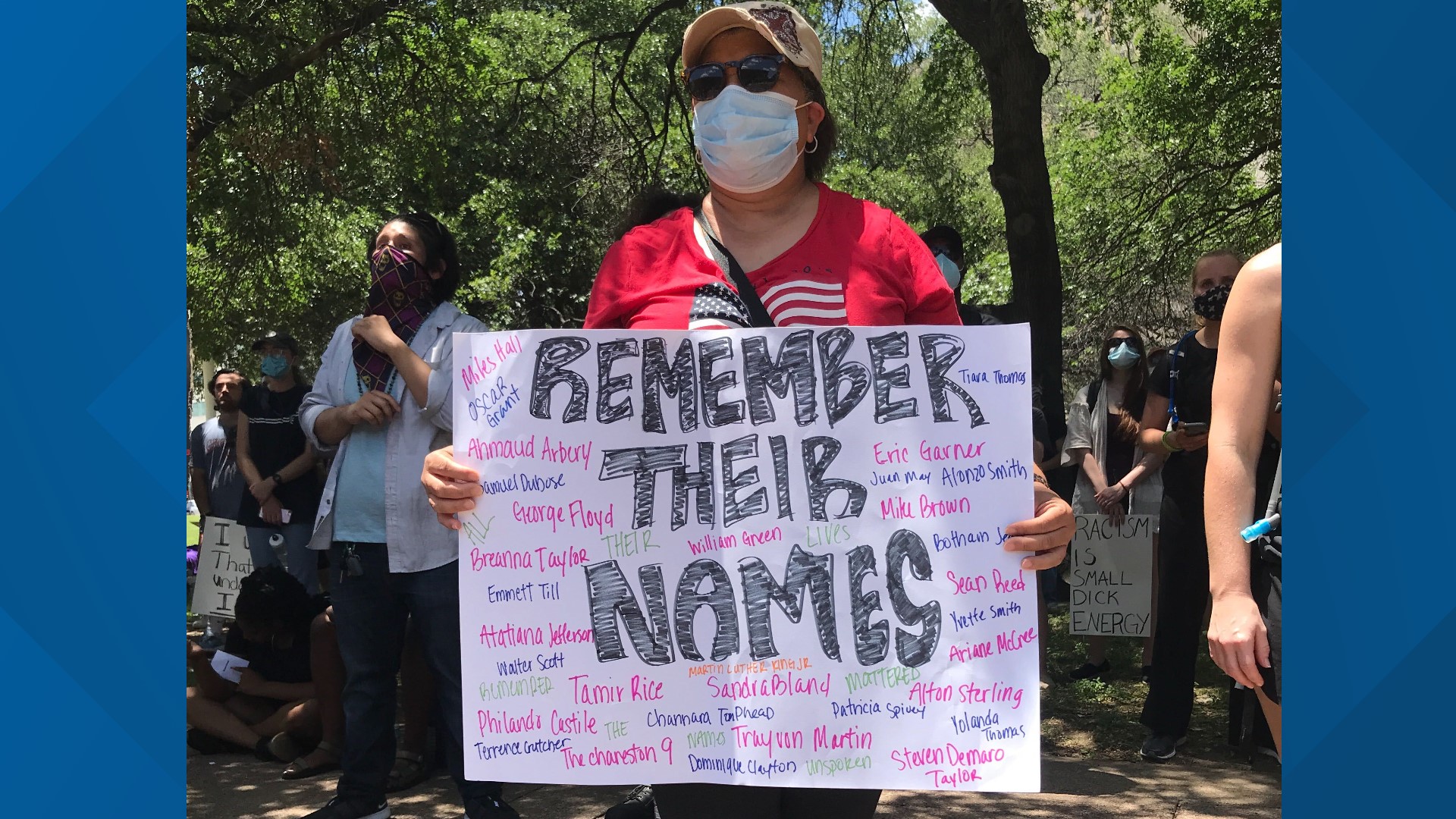DALLAS — George Floyd’s death in Minneapolis was the spark that set off a flurry of rallies, marches and protests across North Texas.
Demonstrators have been crying out on the streets of Dallas for a week, demanding to be heard and demanding to see change.
Seven days after the demonstrations began, Dallas City Manager T.C. Broadnax released an action plan outlining policy changes at the Dallas Police Department.
The memo to council members was released late Thursday night, ahead of a special called council meeting Friday afternoon.
“This plan will guide our immediate, short term and long term focus areas for change that will deliver solutions and outcomes that are anchored in responsible, equitable, accountable and legitimate efforts to restore and increase trust within our community,” Broadnax wrote.
He outlined steps he said the Dallas Police Department has already taken, such as requiring implicit bias training, creating a community oversight board, making it easier to file a complaint, increasing the use of body cameras, and implementing special teams to respond to mental health crises.
He also outlined eleven action items including, in part:
- A duty to intervene policy, which was added to the department’s general orders on June 4.
- A policy to require officers to warn someone before they shoot, to be implemented by June 12.
- A ban on choke holds, which was added to the general orders on June 3.
- An early warning system to identify officers with three or more concerning incidents, to be implemented by November.
- A review of all use-of-force policies, to be completed by the end of August.
RELATED: What do protesters want? Here are 10 demands sent to the Dallas Police Department, local leaders
But even some police officers say to describe these changes as real reform isn’t accurate.
A ban on choke holds had been in place since 2004. It is not taught during the academy, officers said.
Sgt. George Aranda called the duty to intervene order “pretty much common sense.”
“This is 2020. If you’re an officer standing by another officer who can do that, then you have no business being in this police department,” Aranda said.
The Dallas Police Association expressed concern over the policy requiring officers to warn someone they are going to get shot.
Aranda, who is president of the Dallas chapter of the National Latino Law Enforcement Organization, agreed. He says officers are already trained to say things such as, “Dallas police, drop your weapon,” before they fire their weapon.
Aranda worries forcing officers to also say “I’m going to shoot,” could cost precious time.
Dallas City Council Member Omar Narvaez said he knows several of the policies Broadnax laid out as action items are already in place.
“But, it’s our job to do a better job at communicating that out to the public,” Narvaez said. “That’s what we’ve got to learn to do is communicate better with the greater public.”
He held a listening session that drew a crowd of more than 500 people.
“That means we have a lot more explaining to do and a lot more work to do to make sure the public knows exactly what is going on,” he said.
“This is just the beginning,” he added. “The city manager stated in his memo these are first steps. This is a pathway, but we have a long road ahead of us.”
More on WFAA:

